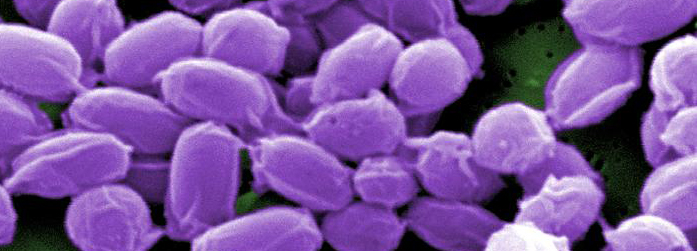Category: anthrax
Operation Shortbread Is Not Your ‘Cookie Cutter’ MCM Exercise

December 4 is National Cookie Day, which—from a public health perspective—is what makes the scratch-made story of Baltimore County Department of Health and Human Services’ Operation Shortbread a fitting one to tell this time of year. What do cookies have to do with public health, you ask? Before we answer that question, let’s begin with Read More >
Posted on by 5 CommentsResponding to Emerging and Zoonotic Infectious Disease Threats in 2017

The fungal superbug Candida auris causes serious and often fatal infections. It can strike people in the places where they seek care—hospitals and other healthcare facilities. In early 2016, we knew about outbreaks of C. auris infections on multiple continents, but we were not sure whether C. auris was in the United States. Fast forward Read More >
Posted on by 3 CommentsKeeping Tabs on Deadly Diseases

CDC is responsible for protecting the public from a host of health threats, including some pretty scary pathogens, like Ebola virus or anthrax for example. One way we do this is through our Select Agents Program which is responsible for governing and regulating the use of certain pathogens by research facilities and labs around the Read More >
Posted on by 1 CommentDisease Detection: Laboratories on the front lines

You can’t respond to threats if you don’t know what they are, which is one reason that laboratories play such an important role in public health. Public health laboratories have helped detect all kinds of threats to the public’s health; including anthrax, monkey pox, novel flu viruses, and foodborne disease outbreaks caused by germs like Read More >
Posted on by 8 CommentsTesting…1,2,3: How Does CDC Respond to Anthrax?

This week, CDC’s Division of Strategic National Stockpile is practicing how it would respond to the release of anthrax in multiple locations across the nation. Four states – North Carolina, Alabama, Tennessee and Kentucky – also are participating in this exercise so they, too, can test their abilities to respond. Read More >
Posted on by 2 CommentsHelping Scotland Investigate, Treat Anthrax Among Heroin Users
On December 17th, Health Protection Scotland contacted the Bacterial Zoonosis Branch (BZB) to discuss 3 cases of anthrax in heroin users. They requested assistance with the epidemiologic investigation and patient treatment options, such as adjunctive therapy with anthrax immune globulin. Because immunotherapy is of potential benefit in anthrax, the U.S. Department of Health and Human Read More >
Posted on by 7 Comments
